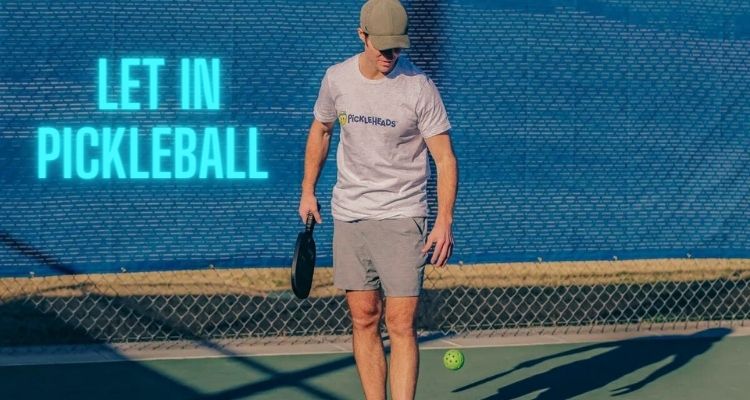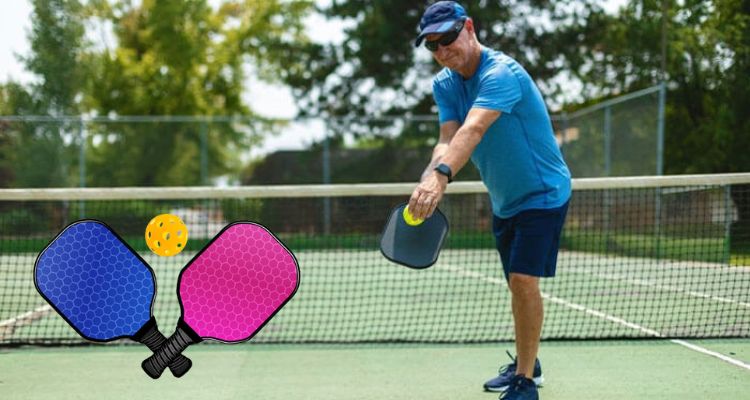Hey there, pickleball enthusiasts! As this exciting sport continues to grow in popularity, it’s important to keep up with all the rules and regulations that ensure a safe and fair playing field. One rule that has recently been removed from official tournaments is the let rule. Today, we’re going to dive deep into what exactly a let is in pickleball and why it’s no longer part of the game at the highest level. So, let’s get started!
What’s a Let Serve in Pickleball?
Imagine this scenario: you’re serving the ball, but it fails to clear the net or touches any part of it on its way over. Well, that’s when the let serve comes into play. It’s a do-over, essentially, where the serve doesn’t count as a point for you or your opponent. This gives you another chance to make a solid serve without any penalty. It’s a fair way to level the playing field before your opponent gains an automatic point for winning the service possession. Pretty cool, huh?

How Many Let Serves Are Allowed?
Now, let’s talk about the limit. In pickleball, you’re allowed up to two let serves per point. But hold on, there’s a catch! These let serves can’t be consecutive. Two in a row would result in what we call a “double fault,” and your opponents would snatch an immediate point. This rule prevents players from exploiting serving errors to their advantage, keeping things nice and fair for everyone involved.
Recent Changes to the Let Rule in Pickleball
Let’s fast forward to the recent modifications to the let rule. Recognizing the need for fairness and consistency in the game, pickleball officials made some adjustments. Here’s what’s new: players must make their call before the ball bounces twice on their side of the court for it to be considered “in play” and not a let. If a player makes the call after that timeframe, they risk losing a point, whether they are correct or not about the ball going out of bounds originally. This change ensures more accurate let calls, removing any influence from wind or unpredictable bounces. It’s all about reaction speed and good judgment now, making pickleball fairer than ever before!
Why Was the Let Rule Removed?

The committee that governs pickleball made the decision to remove the let rule for several reasons. First, it was considered too complex for new players to grasp, often leading to confusion about replaying points. Inconsistencies among referees when deciding whether to call a let or not also played a role in its removal. Additionally, some felt that the let rule took away from the competitive nature of pickleball. By eliminating it, games have become faster and more enjoyable for both players and spectators. The decision has made refereeing easier and more consistent across all levels of play. It’s a win-win situation!
Frequently Asked Questions
By removing the let rule, gameplay becomes more fluid with fewer interruptions. It also eliminates potential disagreements among players regarding out-of-bounds hits due to paddle contact. It’s all about keeping the game smooth and eliminating unnecessary disputes!
According to the USA Pickleball Association rules, a maximum of two let serves is allowed per rally. This means that if an opponent hits two consecutive shots before they bounce on your side of the court, no more points can be scored during that rally. Players must reset to zero points each and switch sides. Let’s keep it fair, folks!
Serving is a crucial skill to master in pickleball. Here’s the lowdown: stand behind the back line, and toss the ball into the air with your dominant hand. Then, using your non-dominant hand, hit the ball over the net, ensuring it lands within bounds on your opponent’s side of the court. Remember, keep the contact below waist height to avoid committing a fault. Serve it up with style!
A let serve occurs when the ball hits the net but still lands in the correct area of the opponent’s court. It’s a legal outcome, as long as the net isn’t touched. We see let serves in other sports too, like tennis, badminton, table tennis, and even beach volleyball. It’s all part of the game!
In Conclusion, Let’s Recap!
So there you have it, folks, a comprehensive guide to the let rule in pickleball! It’s a rule that benefits players by giving them a chance to replay a point after an unfortunate net touch. This rule change has been widely accepted, creating a fairer and more enjoyable experience for pickleball enthusiasts everywhere. Whether you’re a beginner or a seasoned player, understanding the let rule can only enhance your skills and add to the fun on the court. Happy pickleball playing, everyone!